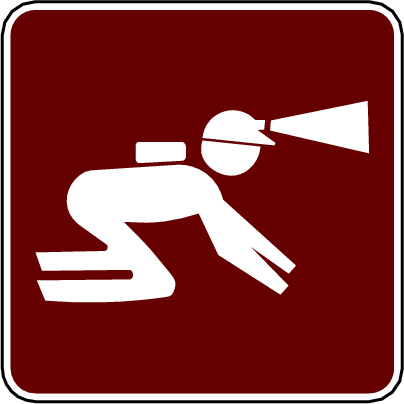Last semester, Professor Bridges published Reproducing Race: An Ethnography of Pregnancy as a Site of Racialization. In a visit to her office hours, I learned from her that the book examines racism as a systemic production of predetermined life choices, and her analysis is at the institutional level, yet discrete acts of resistance are also important to counter the inertia of traditional bureaucracy. That inertia, untouched, sets the terms of conversations about the poor—for example, reducing subsidized healthcare to goodwill for which recipients should be grateful. By those terms, any critique from a recipient of whether the help is actually helpful smacks of ungratefulness and preemptively shuts down that important source of input.
For me, it’s interesting to consider Professor Bridges’ insights with her professional background in mind: a ballet dancer with a joint BU professorship in Anthropology and Law. I was part of a group of students who collectively interviewed potential faculty hires when she was a candidate, and she described law school as an institution of higher learning that prepares students to think critically and originally about society—in sum, much more than a trade school that prepares worker bees to command higher-than-average salaries. She can explain how the different vocabularies of anthropology and law present analytical opportunities when used in combination, in that a new strategy for one may be discovered in the language of the other. But if there are multiple and overlapping ways to articulate visions for society, including through ballet, then why choose law student over any other graduate identity?
 I recently participated in a focus group convened to process student feedback on what brought us to BU Law and how our early impressions might have been confirmed or challenged since attending. As I listened to students giving well-considered sound bites and searched for my contribution, it struck me that I had worked much harder to decide whether to go to law school at all than to decide which law school to attend. Once I met a few faculty and staff at BU Law, the school choice was effectively sealed, but the prior field of study choice was much more difficult. I would have acquired any tools that would have given me the effectiveness I felt I was missing. If a degree in spelunking would have been my best bet for leverage as a social change agent, then I would have become a spelunker, easy. As it turns out, after formative stints in independent music, cancer genetics, youth ministry, and with an effective social worker and public health researcher as my wife, I came to the point of choosing law as a practical next step.
I recently participated in a focus group convened to process student feedback on what brought us to BU Law and how our early impressions might have been confirmed or challenged since attending. As I listened to students giving well-considered sound bites and searched for my contribution, it struck me that I had worked much harder to decide whether to go to law school at all than to decide which law school to attend. Once I met a few faculty and staff at BU Law, the school choice was effectively sealed, but the prior field of study choice was much more difficult. I would have acquired any tools that would have given me the effectiveness I felt I was missing. If a degree in spelunking would have been my best bet for leverage as a social change agent, then I would have become a spelunker, easy. As it turns out, after formative stints in independent music, cancer genetics, youth ministry, and with an effective social worker and public health researcher as my wife, I came to the point of choosing law as a practical next step.
 Sometimes I’ve imagined that effectiveness in any field, in part, may depend on feeling as though that one field is the real leverage point in society, which the practitioner intimately realizes even if few outsiders do. (When I did music full time, I thought nothing could be as influential a perfect song.) I’m beginning to see that society has many leverage points, and if that is true, then broad perspective requires interdisciplinary thinking and sensitivity to the contributions of disparate professions and voices. That’s where law is broader than self-interested earning power (which, to be fair, has its legitimate time and place) and more inclusive than the inertia of traditional bureaucracy (which, again, has its legitimate time and place). Law is proudly contentious with itself, generative of new schools of thought, adapted to inherent contradictions and tensions, and relentlessly strategic. I’m hard-pressed to give an all-purpose description because, in the end, law is defined by how it plays out in everyday life when it is no longer spoken of in terms of law. (For my particular professional focus, when people have housing, property law is at work and it derives some of its definition from that outcome.)
Sometimes I’ve imagined that effectiveness in any field, in part, may depend on feeling as though that one field is the real leverage point in society, which the practitioner intimately realizes even if few outsiders do. (When I did music full time, I thought nothing could be as influential a perfect song.) I’m beginning to see that society has many leverage points, and if that is true, then broad perspective requires interdisciplinary thinking and sensitivity to the contributions of disparate professions and voices. That’s where law is broader than self-interested earning power (which, to be fair, has its legitimate time and place) and more inclusive than the inertia of traditional bureaucracy (which, again, has its legitimate time and place). Law is proudly contentious with itself, generative of new schools of thought, adapted to inherent contradictions and tensions, and relentlessly strategic. I’m hard-pressed to give an all-purpose description because, in the end, law is defined by how it plays out in everyday life when it is no longer spoken of in terms of law. (For my particular professional focus, when people have housing, property law is at work and it derives some of its definition from that outcome.)
Law is the source code for policy programs and the incentives for institutional economic behavior. Law is the authority and the enforcement of high-level decisions that we all live through. Law is more than a way of understanding social order, because it’s how society is ordered already. Said another way, the US is organized such that good ideas can only float around in the ether and get us revved up for some loosely articulated future until the idea is fixed in place by some legal underpinning, at which point that idea can begin to shape our living environment. That’s the point at which inspiration becomes nonprofits and for-profits, or refugees become residents again, or systematically overlooked children receive targeted educational resources. Perhaps law professors with diverse interests and capabilities eventually settle on a similar understanding of law when they choose to teach law. As law students who wore our hearts on our sleeves in our personal statements, hoping law would empower us, we can find ways to hold onto a similar understanding of law as we move toward 3L year and beyond—some of us getting the law degree we set out to get long ago, and some of us getting the law degree we never knew we always wanted.

2 Comments
b greene posted on July 15, 2011 at 8:58 am
Well said brotha
Stanley Fisher posted on July 15, 2011 at 2:22 pm
Thank you for taking the time to share your thinking on this. It leads me to contrast my own choice to attend law school, which was more like “since I don’t know what I want to do with my life, I’ll go to law school.” It’s only by looking back on the course of my career that I can make sense of why my choice was a good (lucky?) one for me.